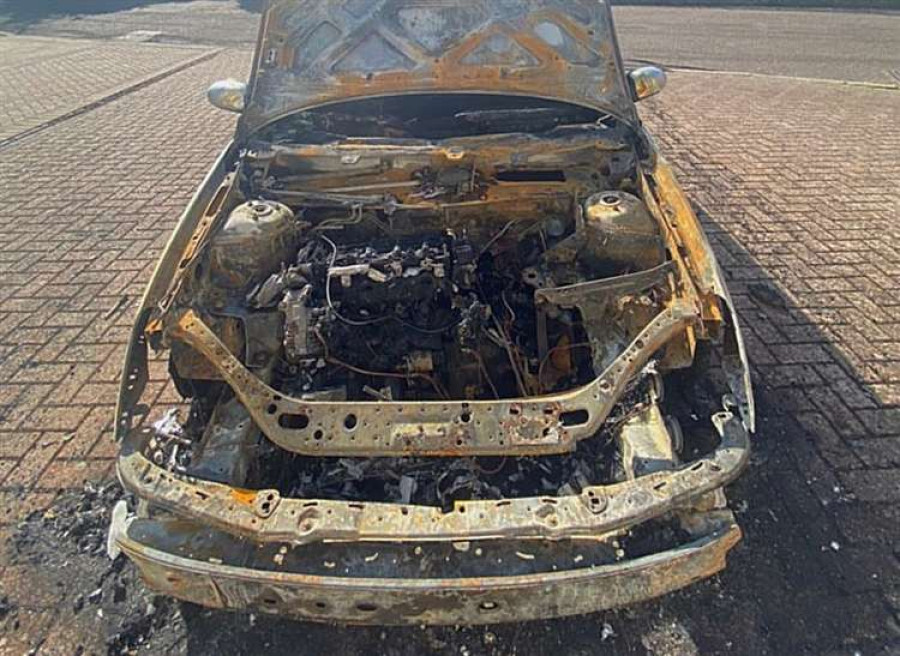National
Nepalis in England on the receiving end of xenophobia amidst Covid-19 fears
Last week, two cars belonging to former British Gurkhas were set on fire in what is believed to be racially motivated attacks.
Elisha Shrestha & Nabin Pokharel
On Wednesday, April 15, Milan Limbu was playing video games in his room when he heard a loud explosion. At first, he thought it was the sound of fireworks. But it was 11 pm in the otherwise quiet neighbourhood of Maidstone, an English town south-east of London. Limbu looked out the window to find his parents’ car on fire.
The police and fire department were called, and the conclusion was arson—the car had deliberately been set on fire. For Limbu, the son of Ram Kumar Limbu, a former British Gurkha, it was an attack that he’d never experienced before in Maidstone, a small town that is known as a Gurkha enclave in England.
“It was an attack on my family, on our house,” said Limbu.
But that wasn’t to be the only attack on the Gurkha community that night. Barely an hour after Limbu’s parents’ car was set afire, another car belonging to Basanta Maden, also a former British Gurkha and Limbu’s neighbour, was burned.
Ratna Limbu, Milan’s uncle, believes that the arson attacks were racially motivated.
“We have been deeply saddened and, at the same time, badly shaken up by these incidents,” he said. “I am afraid that my family might also be the target of a hate crime.”
The arson attacks on Limbu and Maden are by no means isolated incidents. In recent days, physical and verbal attacks against the Nepali community in England are becoming much more common. Many believe that this has to do with the Covid-19 pandemic, which has sparked racism and anti-Asian xenophobia across the world.
Last month, when Roshan Gurung was walking on the street of Bristol, a man directed an angry rant at him from his car.
“It was the first time that I faced racism. I get chills even remembering the incident. The man yelled at me, saying at what price I was selling bats and then he sarcastically congratulated me for spreading Covid-19,” said Gurung.
On March 18, Haushala Thapa Zimba reported being the target of a comment by a passerby who accused her of having brought the “virus” to England.
“Until then, I had never been harassed for my race. So, when racist slurs were used against me, I felt shocked, angry and unsafe at the same time. I felt like people were judging me based on my appearance,” said Zimba.
As the number of Covid-19 cases rises, fear and anxiety over the potentially deadly disease have led individuals and groups to scapegoat Chinese people and those of Asian descent. Throughout history, whenever there is a major incident with global or regional implications, people have sought to allocate blame to certain vulnerable populations in order to calm their own fears.
For instance, during the H1N1 swine flu outbreak in 2009, Mexicans and many Latinos were scapegoated whereas people of African descent were scrutinised during the 2014 Ebola outbreak.
There is evidence that wherever outbreaks take place, people scapegoat groups that are already marginalised and treated as “the other.”
Narayani Devkota, a lecturer at Tribhuvan University’s Sociology Department, said that the Nepali community in the UK has become a target of racist crimes amidst the outbreak of Covid-19 because they have long been regarded as “the other” in the predominantly white society.
“Nepalis in the UK are racially distinct immigrants who are in the minority. They are also regarded as comparatively poor in socio-economic status. These reasons may have further triggered the racially motivated act against them during the outbreak,” said Devkota.
According to Neelima Limbu, a resident of Dover, harassment against the Nepali community existed even before the outbreak of Covid-19.
“I work in a supermarket and I have faced comments such as ‘go back to your country’ several times, even before the corona outbreak,” said Limbu. “Most of the time, these attackers are a small disruptive group of individuals, such as uneducated people and kids.”
Neelima, however, said misinformation regarding Covid-19 and its association with a certain ethnicity has only contributed to the hostility towards Nepalis.
“Since the media has been Covid-19 with pictures of Asian people, many have started scapegoating Nepalis on the basis of their appearance, as there are many Nepalis who resemble East Asians,” he said.
The repeated use of photos of Asians alongside news about Covid-19 could contribute to the xenophobia Asians already face, according to Kainaz Amaria, the American news outlet Vox’s visuals editor.
“News outlets must ask themselves—Are the photographs further stigmatizing a particular community or perpetuating stereotypes?” said Amaria.
As for the arson attacks, Dinesh Khadka, a Maidstone borough councillor, said that the police are investigating the cases and five people have been taken into custody on suspicion of involvement. Khadka, however, doesn’t believe that the arson attacks were racially motivated.
“I have spent around 19 years in this locality, and I have never come across a racially motivated crime against the Nepali community,” he said. “There are around a thousand Nepalis living in Maidstone and people love and respect British Gorkhas. We should see this as an arson attack that happened to be on Nepalis, rather than as a racially motivated crime against Nepalis.”
Khadka reported that the Maidstone community has successfully raised the total of 1,000 pounds for victims of the arson attacks as a gesture of solidarity.
But not everyone shares Khadka’s optimism.
Alan Mercel-Sanca, chief executive officer of the UK-Nepal Friendship Society, said that the arson attacks were “symptomatic of a much broader engrained problem of anti-Asian racism”.
In an email that was sent to community leaders and council members, Mercel-Sanca urged the authorities to monitor and act to prevent racially motivated crimes against British Gorkhas.
Even officials at the Nepali Embassy in London believe that the attacks were a result of racial stereotyping.
“We believe that the Maidstone incidents were racially motivated,” said Sarad Raj Aran, deputy chief of mission at the Nepali embassy. “We are concerned that if such crimes keep happening, racist acts against Nepalis may continue, even after the pandemic is over.”




 22.12°C Kathmandu
22.12°C Kathmandu (1).jpg)














